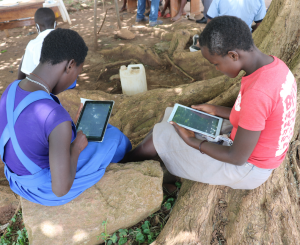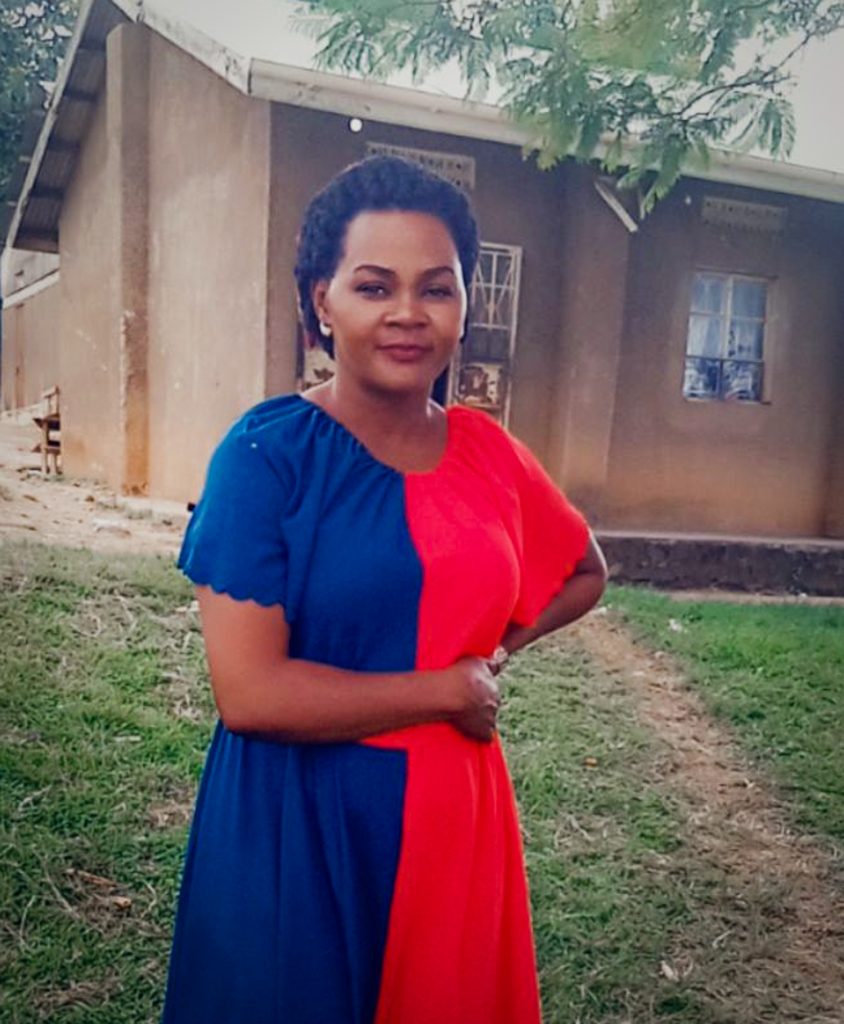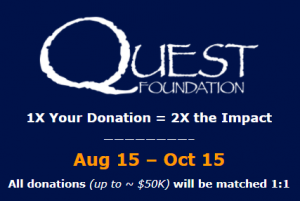International Literacy Day 2021: Digital literacy programs for empowering African Youth
Sept 3, 2021
 Literacy is an undeniable human right. This is because literacy programs enhance understanding and skill acquisition, which are primary factors in achieving prosperity and development. Despite the necessity, millions of young Africans are still unable to acquire basic literacy training, especially digital literacy.
Literacy is an undeniable human right. This is because literacy programs enhance understanding and skill acquisition, which are primary factors in achieving prosperity and development. Despite the necessity, millions of young Africans are still unable to acquire basic literacy training, especially digital literacy.
To address this challenge, the United Nations Educational, Scientific, and Cultural Organization (UNESCO) has been championing global literacy programs since 1946, with an aim of achieving literacy for all. Acquiring and improving educational resources is a fundamental component in the right to education because it empowers people with skills to participate in their communities and contributes to improving living conditions.
Bearing in mind the impact of the COVID-19 global pandemic on literacy development in Africa, the annual celebration of International Literacy Day (ILD) on September 8th, 2021 presents an “opportunity for governments, civil society and stakeholders to highlight improvements in world literacy rates and reflect on the world’s remaining literacy challenges,” especially in regard to the digital divide. This issue is furthered by the ILD 2021 theme: “Literacy for a human-centred recovery: Narrowing the digital divide.” The theme is an urgent call for investing in inclusive learning technology to address the existing digital divide that has only increased since the start of the global COVID-19 pandemic.
COVID-19 impact on Africa’s literacy programs
 To examine Africa’s digital divide and e-learning adaptability at the start of the COVID–19 pandemic, Afrobarometer’s policy paper looked at digital infrastructure, accessibility of digital devices in homes, and digital literacy among adults. The findings of the policy paper revealed that, although many students in Africa were eager to switch to remote learning to mitigate the effects of COVID-19, this learning was affected by the digital divide; primarily related to inadequate technological devices, poor electricity, and issues with internet access. These issues hindered remote learning, especially in rural areas. The findings were further highlighted in the 35th Ordinary Session of the African Committee of experts on Children’s Rights and Welfare. The committee revealed that during the pandemic in Africa, “school closures exacerbated previously existing inequalities and that children who were already most at risk of being excluded from a quality education have been most affected.”
To examine Africa’s digital divide and e-learning adaptability at the start of the COVID–19 pandemic, Afrobarometer’s policy paper looked at digital infrastructure, accessibility of digital devices in homes, and digital literacy among adults. The findings of the policy paper revealed that, although many students in Africa were eager to switch to remote learning to mitigate the effects of COVID-19, this learning was affected by the digital divide; primarily related to inadequate technological devices, poor electricity, and issues with internet access. These issues hindered remote learning, especially in rural areas. The findings were further highlighted in the 35th Ordinary Session of the African Committee of experts on Children’s Rights and Welfare. The committee revealed that during the pandemic in Africa, “school closures exacerbated previously existing inequalities and that children who were already most at risk of being excluded from a quality education have been most affected.”
The Digital Observer 4 Africa (DO4 Africa), an organisation responsible for digital development innovations, acknowledged that the inability to afford digital infrastructure and the lack of adequate information technology support are the main factors causing the digital divide in Africa. Along with this, many schools passed on the cost of providing and accessing ICT infrastructure to students and their families during the pandemic, which further complicated remote learning.
From the above, it is clear how the COVID-19 crisis is disrupting literacy programs targeted towards Africans. The pandemic has magnified the already existing disparities affecting access to meaningful literacy education and made it more difficult for those already receiving said education to continue doing so.
Mitigating challenges facing literacy programs in East Africa
As the pandemic continues to overwhelm literacy programs in Africa, efforts are being made by government and non-profit organisations to contribute to literacy development. Worthy of mention are the efforts by Asante Africa Foundation in the East Africa nations of Kenya, Uganda, and Tanzania.
In Kenya, Asante Africa Foundation has trained students to improve their “communication, resilience, problem solving, and digital skills,” with the benefits of bridging the digital literacy divide and building educational confidence. Students who have benefited from this learning method, attested that it, “proved a stress reliever and reduced cases of depression and suicidal thoughts.”
In Uganda, the foundation is contributing to enhance digital literacy among school children by training peer educators on how to use learning technologies like tablets. For many of the children this was a great experience as they were able to discover digital training to counter educational challenges that came with distance learning.
In Tanzania, the foundation is assisting to curb the effects of stalled education by distributing learning materials in communities to expedite continuous learning. The learning resources distributed include review books that can assist students in being up to date on studies that they missed during school closures.
There are also efforts by private schools in East Africa to swiftly adopt the use of technology to teach and learn virtually. The Kenyan government through its Ministry of Education, and in conjunction with Kenya Institute of Curriculum Development (KICD), resorted to delivering lessons using the radio and television. This approach by the government, though welcoming, had some limitations as “many learners have been unable to access them because of lack of radios, TV sets, electricity, and the high cost of internet data bundles.”
in East Africa to swiftly adopt the use of technology to teach and learn virtually. The Kenyan government through its Ministry of Education, and in conjunction with Kenya Institute of Curriculum Development (KICD), resorted to delivering lessons using the radio and television. This approach by the government, though welcoming, had some limitations as “many learners have been unable to access them because of lack of radios, TV sets, electricity, and the high cost of internet data bundles.”
Acknowledging the efforts of Asante Africa Foundation, to mitigate the difficulties created by COVID-19 pandemic on literacy programs, Josephine (Jozy), an alumnus of Asante Africa Foundation’s Leadership and Entrepreneurship Incubator Summit, and currently working as the Deputy headteacher of a Secondary School in Uganda, said: “Asante Africa provided learni ng materials for schools and encouraged parents to guide and counsel their children, especially girls, who are the most vulnerable. They provided food and other supplies to improve households’ welfare. Students followed their parents’ guidelines and stayed up to date with the news through radios, TVs, and the local public address systems known as ‘mambo bado.’”
Asante Africa Foundation, through the use of youth-managed WhatsApp groups and phone lines, alleviated the impact of both COVID-19 and school closures on students’ mental health. This was done by using these groups as a reliable means of communication and information sharing. Through this, young people struggling with the mental and emotional consequences of the pandemic were able to access needed support. These communication channels provided trusted healthcare information for youth who may not know where to turn for healthcare services, mental or physical.
As the pandemic impacted learning, teachers in Africa did not relent, instead they contributed by resorting to available means aimed at assisting students. Attesting to this Jozy said, “some teachers conducted lessons through television, but that is limited to those who could afford to own one. Many sent learning materials to their students on mobile phones, which is a useful alternative to other forms of more expensive technology.”
In conclusion, irrespective of the efforts being made, more is still needed to be done to evenly distribute literacy programs in Africa. To make distance learning worthwhile to Africans and close the digital divide, the following areas need attention: the improvement of internet connectivity, infrastructure, and skills to engage with technology, and enhancing overall access to electricity. With these changes, desperately needed literacy programs can continue to thrive, even during the pandemic.
WRITTEN BY: Innocent Iroaganachi

